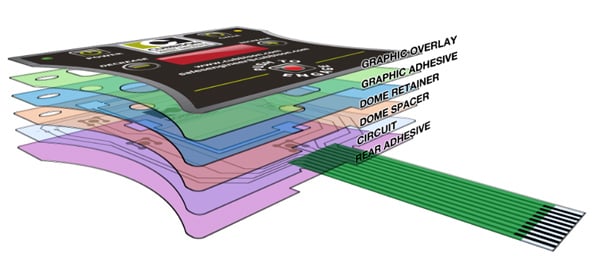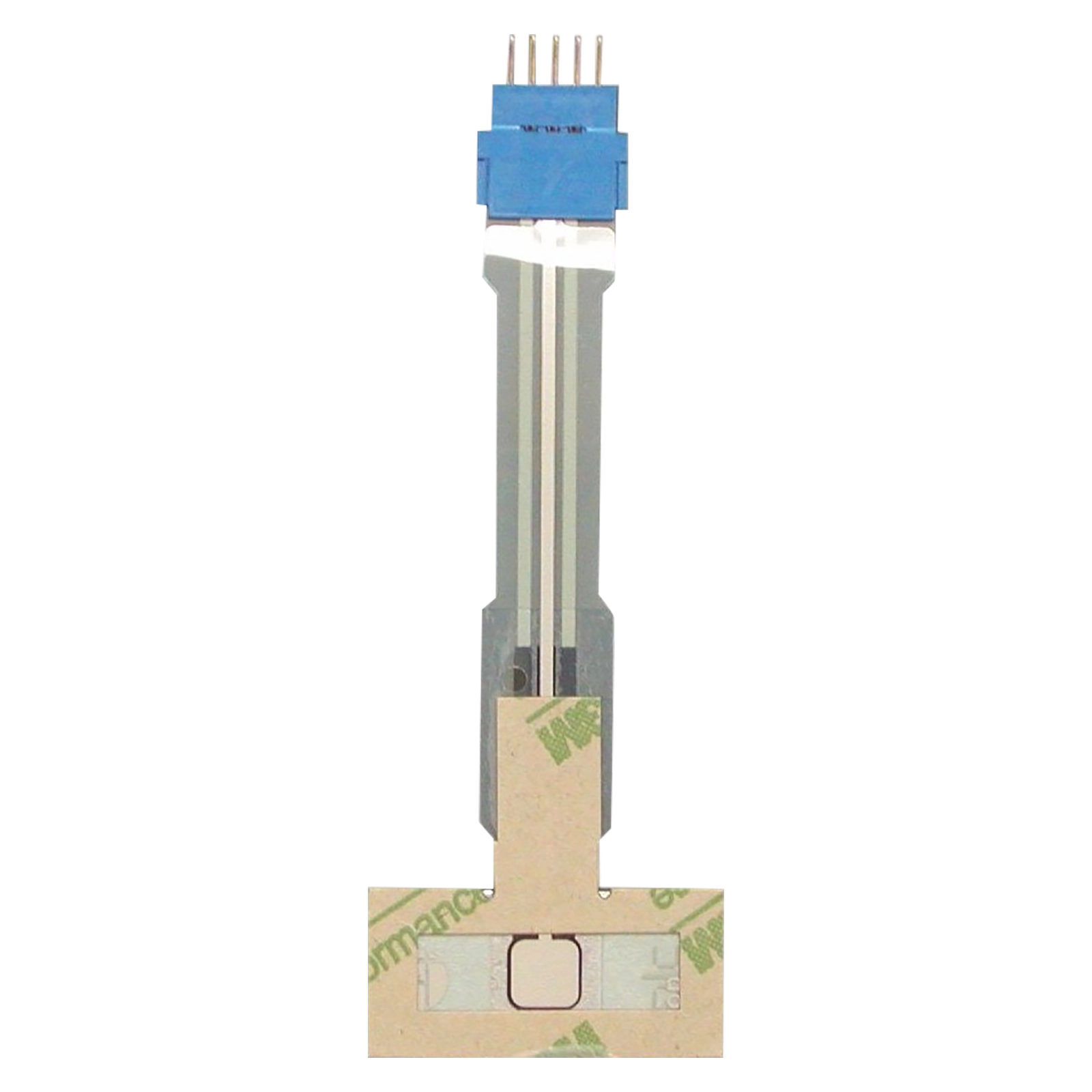Why Membrane Layer Switches Are Crucial for Sturdy Control Solution
Membrane buttons play a critical role in guaranteeing the longevity and reliability of control systems across different industries. As we explore the multifaceted advantages of membrane switches, it ends up being noticeable that their relevance transcends simple capability, influencing individual experience and functional effectiveness.
Summary of Membrane Layer Switches
Membrane layer buttons are versatile and reputable parts typically used in numerous digital control systems. These switches consist of a number of layers, consisting of a graphic overlay, a spacer layer, and a printed circuit layer. The graphic overlay gives both functional and aesthetic design, while the spacer layer makes sure that the buttons are activated only when pushed. The published circuit layer includes conductive traces that complete an electric circuit when the membrane is pressed, enabling the device to react to user inputs.
Membrane layer buttons are typically favored in applications needing a small and light-weight style, making them suitable for handheld tools, clinical tools, and commercial equipment. They can be tailored to meet specific individual demands and can integrate numerous functions such as backlighting, tactile responses, and several colors. Membrane buttons are immune to dust, dampness, and impurities, making them appropriate for settings where resilience is essential.
Advantages of Longevity
In many applications, the sturdiness of membrane layer switches deals significant benefits that boost their overall performance and reliability. These buttons are created to endure severe settings, making them excellent for use in requiring conditions such as high humidity, extreme temperature levels, and direct exposure to chemicals. Their robust building assists to avoid damages from physical effect, guaranteeing resilient functionality and decreasing the need for regular replacements.
Additionally, membrane layer switches are immune to deterioration, which is essential in applications where constant communication occurs. This durability translates to reduce upkeep expenses, as organizations take advantage of reduced downtime and fewer service interruptions. Additionally, the encapsulated style of membrane layer switches over secures inner parts from dust and moisture access, more adding to their life expectancy.
One more benefit is their capacity to keep regular performance over time. With a high resistance for mechanical tension, these buttons maintain their tactile comments and electric integrity, guaranteeing customer contentment. Inevitably, the durability of membrane layer switches over not just enhances functional performance but also cultivates confidence in their reliability, making them a recommended selection for control systems throughout different industries.
Applications in Numerous Industries
Sturdy control systems employing membrane layer buttons find comprehensive applications throughout a series of sectors, each taking advantage of the special characteristics these switches use. In the clinical market, membrane switches are critical for tools such as person screens and diagnostic devices, where integrity and convenience of cleaning are vital. Their resistance to wetness and impurities guarantees they preserve performance in sterilized environments.
The automobile market leverages membrane buttons for control panel controls and infomercial systems, where they give sleek, inconspicuous user interfaces that boost individual experience. These switches are likewise made to withstand harsh problems, consisting of exposure to severe temperature levels and resonances.
In commercial settings, membrane layer buttons are frequently used in machinery control panels, offering look at these guys responsive feedback and sturdiness needed for high-usage applications. Their ability to stand up to chemicals makes them appropriate for making atmospheres where spills and contaminants are constant.

Customer electronics, such as kitchen area appliances and remotes, also utilize membrane buttons for their flexibility and cost-effectiveness. In general, the flexibility and robust nature of membrane layer switches over make them essential throughout various fields, guaranteeing efficient procedure and longevity in control systems.
Layout and Aesthetic Appeal
While functionality is extremely important, the layout and visual allure of control systems geared up with membrane buttons play a crucial function in individual involvement and total experience (membrane switch). The aesthetic layout of these switches can considerably affect customer understanding and communication. A well-designed membrane layer switch enhances the attractiveness of the tool, making it a lot more attractive to users and fostering a link between the customer and the product
Membrane changes provide a good deal of flexibility in style, enabling producers to tailor graphics, colors, and appearances to line up with brand name identification and product visual appeals. The usage of vivid shades and unique patterns can draw focus, while tactile responses can strengthen the user's interaction with the tool. In addition, the capacity to integrate LED signs and backlighting into the membrane layer switch design offers both useful and visual benefits, enhancing presence and usability in various environments.

Enhancing Customer Experience

Furthermore, membrane More Help layer switches can be customized to incorporate graphical user interfaces, enhancing use by offering information in a clear and intuitive way (membrane switch). This customization can consist of symbols, tags, and color coding that overview individuals through complex capabilities easily. Furthermore, their convenience permits integration in various settings, making certain regular efficiency whether in commercial equipment or customer electronic devices
The resilience of membrane layer switches additionally plays an important duty in individual experience. By withstanding extreme problems and expanded usage, these buttons minimize the possibility of system failings, hence advertising dependability and user confidence. Ultimately, the critical use of membrane layer switches over not only boosts functionality yet additionally substantially improves user interaction with control systems, making them a vital element in contemporary layout.
Conclusion
